Miscellaneous News
Elisabete Martins
RSPP Call for Papers | Special Issue on Climate Economics
Regional Science Policy & Practice (RSPP) Call for Papers
Special Issue on Climate Economics
Guest Editors
Karina Sass (This email address is being protected from spambots. You need JavaScript enabled to view it.)
Motivation
Climate change is without a doubt one of the biggest challenges of our time. It can harm the entire ecosystem, worsening the living conditions of humans and many animal species. It can increase the frequency and intensity of extreme weather events, like hurricanes, floods, and drought, causing several socioeconomic impacts. It is a global event, but their impact and mitigation and adaptation actions are regional. Climate economics has a crucial role here. It can link the scientific base of climate change to the policy by estimating the socioeconomic impact of different climatic scenarios, identifying local and regional vulnerabilities, and evaluating mitigation and adaptation policies.
This call aims to mobilize publications on climate and regional development strategies and possible policy responses to climate change. We kindly invite contributions on topics related (but not limited) to:
- The cost of action and/or inaction to face climate change
- Local and regional impacts of extreme weather events
- Effects of climate change on migration and labor market
- Vulnerability assessment
- Policy evaluation
- New tools and methods for climate economics analysis
Invitation for submission
We welcome original, unpublished papers that address the above questions, or any other research questions not mentioned, as they relate to regional and climate economics. We look forward to papers from all parts of the world.
Please note that the deadline for submitting papers to https://rsaiconnect.onlinelibrary.wiley.com/journal/17577802 for the RSPP Special Issue on Climate Economics is November 15, 2023, with foreseen publication of accepted papers in 2024. Please contact This email address is being protected from spambots. You need JavaScript enabled to view it. if you need more information.
Call for Special Session Proposals: EXTENDED DEADLINE
|
|
|
|
|
|
|
New issue of the Romanian Journal of Regional Science, Vol. 16, Winter Issue 2022 now available!
The 2022 Winter Issue of the Romanian Journal of Regional Science (Vol.16, No.2) has been recently launched. All articles can be accessed at http://www.rjrs.ase.ro/index.php/current-issue/
Vol.16, No.2, Winter, Issued December 2022
All articles are downloadable
General Articles
The Geography of the Sharing Economy in Europe ● pp. 1-17
by Camilla Lenzi, Elisa Panzera, Politecnico di Milano, Italy
Spatio-Temporal Patterns of the Talent Labour Market Across European Countries ● pp.18-38
by Cristina Lincaru, Speranta Pirciog, National Scientific Research Institute for Labour and Social Protection, Adriana Grigorescu, National University of Political Studies and Public Administration, Gabriela Tudose, National Scientific Research Institute for Labour and Social Protection, Romania
Invited article and book review on NEW WORKING SPACES DURING THE COVID-19 PANDEMIC (based on the research under Cost Action CA18214 “The geography of new working spaces and the impact on the periphery”)
Socio-Cultural Hybrid Spaces in Milan Coping with the Covid-19 Pandemic ● pp. 39-59
by Bruno Trapanese, Ilaria Mariotti, Politecnico di Milano, Italy
Ilaria Mariotti, Mina Di Marino, Pavel Bednář (Editors), The Covid-19 Pandemic and the Future of Working Spaces, Routledge, 2022 ● pp. 60-63
by Kaire Piirsalu-Kivihall, University of Tartu, Estonia
Forthcoming ERSA 2023 Events, awards and publications' opportunities
|
|
|
|
|
|
|
|
|
|
|
|
|
|
|
|
|
|
|
|
|
|
|
|
|
|
|
|
|
|
|
|
|
|
|
|
|
|
|
|
|
|
|
|
|
|
|
|
|
|
|
|
|
|
|
|
|
Open position for PhD (economics, management and related areas) Project Vine&Wine PT_ Sustainable competitiveness| Deadline: 17 jan 2023
Open position for a PhD (economics, management and similar) researcher (Investigador junior/ Recognised Researcher (R2)) for the research project "Vine&Wine Portugal", supported by the PRR - Recovery and Resilience Plan and the NextGeneration EU European Funds, under the Mobilizing Agendas for Reindustrialisation at the UTAD (University of Trás-os-Montes e Alto Douro), Vila Real, Portugal.
Full-time, 36 months contract. Immediate availability required.
Details available https://euraxess.ec.europa.eu/jobs/51209 (www.utad.pt)
Job posting: Assistant Professor in Urban Analytics
The Department of Geography and Earth Sciences at the College of Liberal Arts and Sciences at the University of North Carolina Charlotte invites applications for a tenure-track appointment at the rank of Assistant Professor in the area of Urban Analytics. We are seeking a dynamic and broadly trained geospatial data scientist with expertise in leveraging data science approaches to analyze and help solve social, economic, environmental, and/or infrastructural challenges of urban residents and their environment. This position will begin on August 15, 2023. We will start to review applications by January 31, 2023.
For more information visit https://jobs.charlotte.edu/postings/47325.
Please contact the search committee chair, Dr. Wenwu Tang (This email address is being protected from spambots. You need JavaScript enabled to view it.) if you have any questions or need any further information.
CALL XI Giorgio Rota Best Paper Award
XI Giorgio Rota Best Paper Award / Call
Urban economies as complex systems
Call: https://lnkd.in/daJhHTaV
https://www.centroeinaudi.it/notizie-in-evidenza/6291-xi-giorgio-rota-best-paper-award.html
Young researchers (born after December 31st, 1988) are invited to participate to the 11th GIORGIO ROTA Best Paper Award by submitting high quality scientific papers presenting original research on the subject "Urban economies as complex systems"
A maximum of three papers will be selected and the authors will be awarded a prize of 1.500 Euros (gross) per paper. The authors will be invited to present their work at the Giorgio Rota Conference that will be organised in May 2023 in Turin in presence or by webinar.
The workshop date and program will be published on the Centro Einaudi website (www.centroeinaudi.it).
The award is in Collaboration with Department of Economics and Statistics ‘Cognetti De Martiis’(ESt, University of Turin), with the Participation of Department of Economics, Social Studies, Applied Mathematics and Statistics (ESOMAS, University of Turin).
With the Support of Fondazione CRT
ERSA Monthly E-news - December 2022
|
|
|
|
|
|
|
|
|
|
|
|
|
|
|
|
|
|
|
|
|
|
|
|
|
|
|
|
|
|
Call for Conference with Nobel winners - Challenges of Europe: Design for the Next Generation - May 17-19, 2023, Bol, island of Brac, Croatia
Dear colleague,
Our honor is to address you on behalf of the Faculty of Economics, Business, and Tourism, University of Split, Croatia. Namely, the 14th International Conference under the title: Challenges of Europe: Design for the Next Generation will be held from May 17 to May 19, 2023, in Bol (island Brac, Croatia), and we are honored to announce our keynote speakers: professor Eric Maskin, Ph.D. (Nobel Prize in Economics in 2007), professor Alvin Roth, Ph.D. (Nobel Prize in Economics in 2012) and professor Edward Altman. Apart from the mentioned Nobel Prize winners, the plenary lecturers will also be the most relevant world scientists, such as Prof. David Reibstein, world-renowned branding and marketing metrics expert, and Prof. Özge Öner, a leading European expert in urban and spatial economics.
Please take into consideration that there are several different possibilities for participation:
- · REFEREED PAPERS (R-TYPE),
- · PAPERS IN PROGRESS (S-TYPE),
- · PAPERS FOR THE PH.D. WORSHOP (P-TYPE),
- · YOUNG PARTICIPANT PAPERS (Y-TYPE) and
- · SPECIAL SESSION PAPERS (X- TYPE).
In addition, several special events will be organized, such as Meet the Professors, Meet the Editors, Advice for young researchers, and a Ph.D. workshop.
All information can be found at our website https://conference.efst.hr/.
Please feel free to share this information with anyone that might be interested.
We look forward to your submission and welcome you to beautiful Bol in May next year!
Best regards,
Call for Abstracts | 48th Annual Conference of Regional Science International – British and Irish Section (RSAIBIS), NEWCASTLE, 5-7 JULY 2023
48th Annual Conference of Regional Science International – British and Irish Section (RSAIBIS), NEWCASTLE, 5-7 JULY 2023
The call for abstracts for RSAIBIS annual conference, taking place in Newcastle on 5-7 July 2023, is now open. The conference is being hosted by CURDS at Newcastle University, and organised by Rachel Franklin.
More details on the website. Please submit your abstract via this link: https://www.rsai-bis.org/online-abstract-submission.html
The deadline for abstract submission is 23 January 2023, and we hope to communicate decisions by mid-February. If you need an early decision for visa purposes, please let us know by writing to Richard Rijnks, RSAI-BIS Secretary: This email address is being protected from spambots. You need JavaScript enabled to view it..
About Us
The Regional Science Association International (RSAI), founded in 1954, is an international community of scholars interested in the regional impacts of national or global processes of economic and social change.

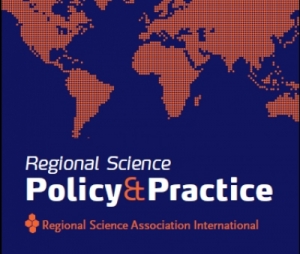
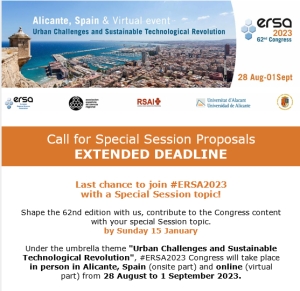


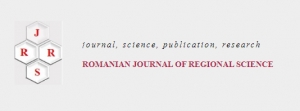




















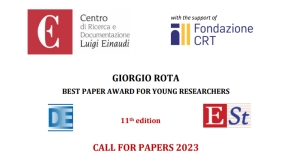
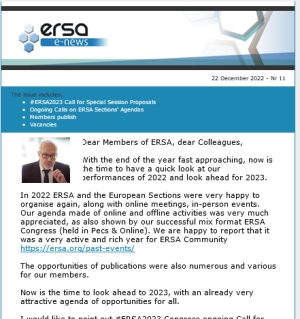

 Dear Members of ERSA, dear Colleagues,
Dear Members of ERSA, dear Colleagues,

 36th ERSA Summer School
36th ERSA Summer School







